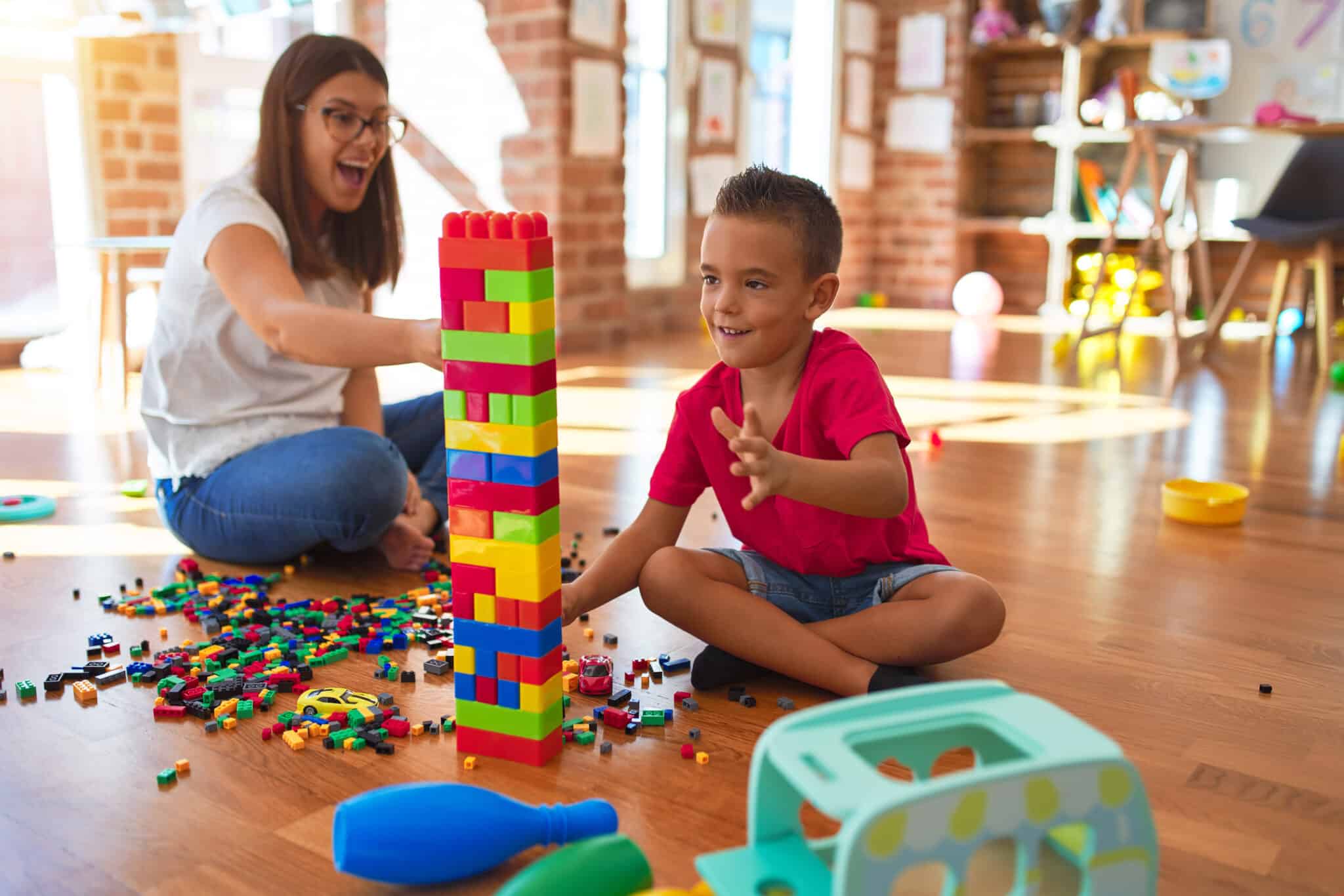What to Expect When Working with Kids with Autism
Written By: Jules Glowinksi, BT
Reviewed By: Melanie Bren, BCBA, LBA

Children with autism are like every other child with their own strengths and weaknesses. However, there are some similarities that you will learn through experience to recognize and work with to reach their goals. There will be challenges but it can also be rewarding when you witness their progress!
Tips for Working With Kids With Autism
Below are some key things to remember when communicating with children on the spectrum to make working with them easier and functional for both of you. It will also be discussed the importance of creating a bond with the child or children you are working with and how to contrive situations to help create that bond.
You should know before beginning to work with children on the spectrum that the company you are working for gives quality training and that your supervisor is easy to get in touch with to communicate any questions or concerns. Quality training is necessary and will give you the confidence you will need to be successful while working with children, especially those on the autism spectrum.
Clearly Communicate to Avoid Confusion
Children on the spectrum can have trouble using and understanding language such as sarcasm, expressions and body language. This means you should expect to have your words be taken literally. When speaking with children with autism, it can help to speak as clearly as possible.
Try avoiding using rhetorical questions or long, complex sentences, especially when you are providing instructions. Simple and straight to the point directions tend to work best during instructional work time.
Incorporate Visual Tools
Some children on the spectrum tend to be more visual learners. You may also use visual tools to assist you in providing instructions. Being successful in communication with the child may take time so don’t get frustrated. Remember to stay open minded and positive.
Stick to a Routine
You will most likely experience kids who have difficulty switching from preferred activities and conversations to non-preferred activities and conversations. If you provide a routine, it can make transitions from preferred to non-preferred activities easier and less likely to evoke challenging behaviors. If you don’t implement expectations with consistency and follow through on your words, the child you are working with, will not know what to expect. This can lead to anxiety and challenging behavior.
Speak with Parents
If you are working with children with autism know that you will be working closely with their parents and guardians. Parents can be anxious leaving their child with someone new. During parent interactions, listen to what they are saying and ask questions that allows them to give insight to their child.
You should ask your supervisor what the expectations are for you when speaking to the parents. Also be sure to ask your supervisor questions on how to navigate through sensitive conservations that may come up. If an accident or something out of the ordinary occurs during your time working with the child, you should reach out to your supervisor to find a way on how to discuss it professionally with the parents.
Sensory Processing
The filtering mechanism in the brains of children with autism works differently in processing the senses of touch, smell, sound, taste and sight. Some of their senses may be sensitive and they may find seemingly routine events absorbing or stressful. Because of the differences in processing sensory information, children with autism will often have difficulties with movement and coordination. These difficulties can manifest in different ways such as short attention span, avoidance of touch, lack of body awareness, and repetitive behaviors (stimming).
Prevent Challenging Habbits With a Behavior Plan
Depending on the setting you are working within, the child may have what is called a behavior plan. A behavior plan is written by a Board-Certified Behavior Analyst (BCBA) and is created after observations and data collection on behaviors that are less functional for the child’s development. The behavior plan will define the behavior(s) and how to react to them accordingly.
This can include many actions such as blocking the behavior, withhold attention to the behavior, or redirecting the behavior. The goal of a behavior plan is to decrease any challenging behaviors and increase positive behaviors that are functional and beneficial to the child. When you begin working you should ask your supervisor if there is a behavior plan in place for the child and if you can be trained on it.
Pairing
The first step when working with a child is to pair with them. Pairing is associating yourself with all good things for the child. The goal should be that the child wants to see you. The more you pair with the child in the beginning the easier it will be to begin giving the child instructions and working through non-preferred activities.
Try to use your strengths to pair with the child. If you are artistic use your abilities to incorporate things, they like such as drawing a favorite character of theirs or creating a board game. Create a fun environment have toys and activities displayed in your work area. Walking into a room with just a table and papers doesn’t inspire a sense of fun. Displaying toys and activities will give you a jumping off point in figuring out what the child is interested and not interested in.
What to expect when working with children with Autism is that anything can happen-good and unplanned. New behaviors such as asking for their favorite snack for the first time or running away when you take the iPad away can all pop up unexpectedly. This can give a sense of excitement or nervousness but your training should give you a sense of confidence that you can work through it.
You should expect that the progress you will see in the children you work with will inspire you in your daily life to appreciate things you may not have noticed before. Remember that each child, parent, and behavior is a learning opportunity for you and your new career. You should expect to make mistakes, because we all do, but if you learn from them, they will make you a stronger positive influence on the children you work with.
Date Posted:
June 7, 2022
Share this blog
Categories
Recent Blog Posts








